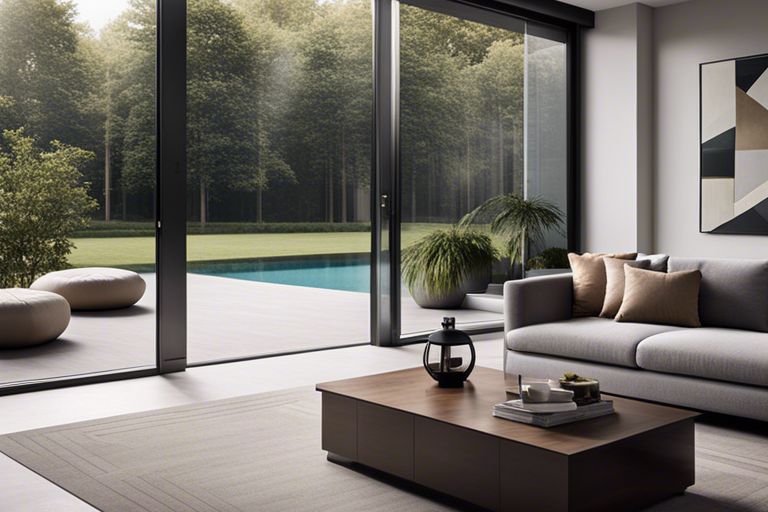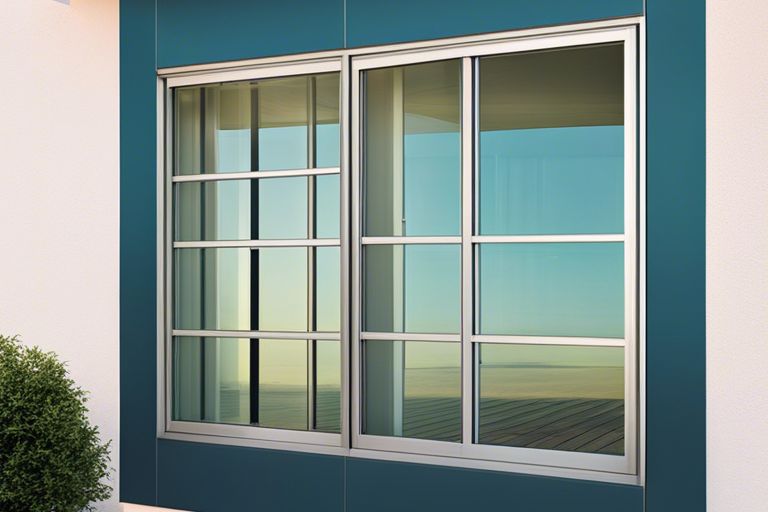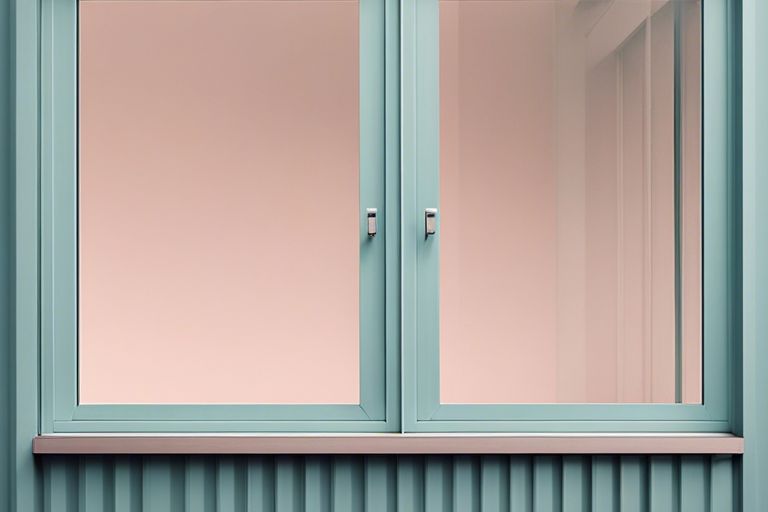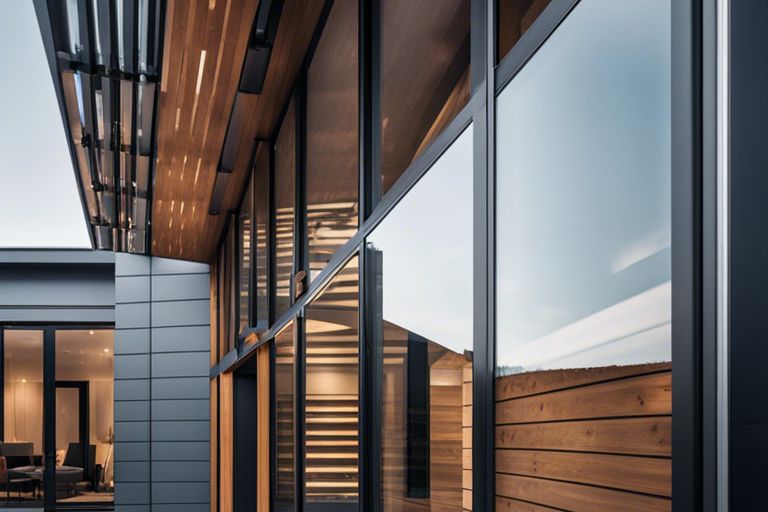When considering the long-term investment of new windows and doors for your home, it’s important to weigh the cost-effectiveness of different materials. While there are many options to choose from, aluminum stands out as a durable and efficient choice that can save you money over the years. Not only are aluminum windows and doors resistant to corrosion and weathering, but they also require minimal maintenance, reducing your long-term expenses. Additionally, the energy efficiency of aluminum frames can lead to significant savings on your energy bills, making them a smart financial decision for any homeowner. In this guide, we’ll explore the various ways in which aluminum windows and doors can be a cost-effective investment for your home over time.
Key Takeaways:
- Initial Cost: Aluminum windows and doors may have a higher initial cost compared to other materials, but their longevity and low maintenance requirements make them cost-effective in the long run.
- Longevity: Aluminum is a durable material that is resistant to corrosion, rot, and warping, making it a long-lasting investment for residential and commercial properties.
- Low Maintenance: With minimal maintenance requirements, such as occasional cleaning and lubrication of moving parts, aluminum windows and doors offer cost savings over their lifespan.
- Energy Efficiency: Aluminum windows and doors can contribute to energy efficiency by providing good insulation, reducing heating and cooling costs over time.
- Customization Options: Aluminum frames can be customized to fit any architectural design, offering versatility and aesthetic appeal while maintaining cost-effectiveness.
- Environmental Impact: Aluminum is a sustainable material that can be recycled, reducing its environmental footprint and contributing to long-term cost savings.
- Resale Value: Installing aluminum windows and doors can increase the resale value of a property, providing a return on investment in the future.
Types of Aluminum Windows and Doors
Even though aluminum is a versatile material, it can be used to create different types of windows and doors to suit your needs. The most common types of aluminum windows and doors include:
- Casement windows and doors
- Sliding windows and doors
- Fixed windows and doors
- Louvered windows and doors
- Bi-fold windows and doors
Recognizing the variety available to you will help you make an informed decision about the type of aluminum windows and doors that best fit your requirements.
Different Designs and Their Functionality
When it comes to aluminum windows and doors, there are various designs to choose from, each serving a specific purpose. For example, casement windows offer a good amount of ventilation and can be hinged to open either inwards or outwards, providing flexibility and practicality. On the other hand, sliding doors are great space-saving options for small rooms or balconies, while bi-fold doors are perfect for connecting indoor and outdoor spaces seamlessly. It’s important to consider the functionality you desire when selecting the design of your aluminum windows and doors.
Material Specifications and Quality Grades
Aluminum windows and doors come in different specifications and quality grades to ensure durability and performance. The aluminum alloy used, as well as the quality of the finish, can significantly impact the longevity and appearance of your windows and doors. Choosing a higher grade of aluminum along with a durable finish will ensure that your windows and doors remain attractive and functional for many years to come.
Factors Affecting Cost-Effectiveness
Some factors can influence the cost-effectiveness of aluminum windows and doors over time. Here are a few to consider:
- Initial installation costs: The price you pay for the initial installation of aluminum windows and doors can significantly impact their cost-effectiveness over time.
- Long-term durability and maintenance: The durability and maintenance requirements of aluminum windows and doors can affect their cost-effectiveness in the long run.
- Energy efficiency: The energy-saving benefits of aluminum windows and doors can play a role in their overall cost-effectiveness over time.
Though these factors may vary based on your specific situation, they can all impact the long-term cost-effectiveness of aluminum windows and doors.
Initial Installation Costs
The initial installation costs of aluminum windows and doors are an important consideration when evaluating their cost-effectiveness. While the initial investment in aluminum windows and doors may be higher than other materials, such as vinyl or wood, their long-term durability and low maintenance requirements can make them a cost-effective choice in the end. Additionally, the sleek and modern appearance of aluminum windows and doors can add value to your property, making them a worthwhile investment for your home.
Long-Term Durability and Maintenance
When considering the long-term durability and maintenance of aluminum windows and doors, it’s important to note that they are highly resistant to corrosion and require minimal upkeep. Unlike wood, aluminum does not rot, warp, or require repainting, which can save you time and money on maintenance costs over the years. Additionally, aluminum windows and doors are highly durable and can withstand harsh weather conditions, making them a long-lasting and cost-effective choice for your home.
Step-by-Step Analysis of Long-Term Savings
Keep in mind that when considering the cost-effectiveness of aluminum windows and doors over time, it’s important to conduct a thorough analysis to truly understand the long-term savings potential. Below is a step-by-step breakdown of the key factors to consider when evaluating the cost-effectiveness of aluminum windows and doors.
| Step 1: Initial Investment | Consider the upfront cost of purchasing and installing aluminum windows and doors for your property. |
| Step 2: Estimating Lifespan and Depreciation | Determine the expected lifespan of aluminum windows and doors, as well as the rate of depreciation over time. |
| Step 3: Calculating Energy Efficiency and Insulation Benefits | Evaluate the potential energy savings and insulation benefits that aluminum windows and doors can provide. |
| Step 4: Factoring in Maintenance and Operational Costs | Consider the ongoing maintenance and operational costs associated with aluminum windows and doors. |
Estimating Lifespan and Depreciation
When assessing the cost-effectiveness of aluminum windows and doors over time, it’s essential to estimate their lifespan and understand how depreciation may impact their value. Aluminum is known for its durability, and when properly maintained, aluminum windows and doors can have a long lifespan. However, it’s important to consider potential factors such as weather conditions and maintenance practices that can affect their longevity. Additionally, understanding the rate at which aluminum windows and doors depreciate over time will provide valuable insight into their long-term cost-effectiveness for your property.
Calculating Energy Efficiency and Insulation Benefits
Another crucial aspect to consider when evaluating the cost-effectiveness of aluminum windows and doors over time is their energy efficiency and insulation benefits. Aluminum frames are highly conductive, which can pose challenges in terms of heat transfer and insulation. However, advancements in technology have led to the development of thermal break systems and improved insulation features for aluminum windows and doors. By calculating the potential energy savings and insulation benefits that aluminum products can offer, you can make a more informed decision about their long-term cost-effectiveness for your property.
Tips for Maximizing Your Investment
For maximizing your investment in aluminum windows and doors, there are several important steps you can take to ensure longevity and cost-effectiveness. Here are some tips to help you get the most out of your purchase:
- Regularly clean and maintain your aluminum windows and doors to prevent corrosion and ensure they function properly.
- Invest in high-quality, durable aluminum products to avoid frequent replacements and repairs.
- Consider adding insulation or energy-efficient features to your aluminum windows and doors to reduce your energy costs over time.
Knowing how to properly care for and optimize the performance of your aluminum windows and doors is essential for getting the best return on your investment.
Selecting the Right Aluminum Products
When it comes to selecting the right aluminum products for your home, it’s essential to consider factors such as durability, thermal performance, and aesthetic appeal. Look for aluminum windows and doors that are specifically designed to withstand your local climate while also providing energy-efficient benefits. Additionally, consider the reputation and warranty of the manufacturer to ensure you are investing in high-quality products that will stand the test of time.
Best Practices for Installation and Maintenance
Proper installation and maintenance of aluminum windows and doors are crucial for ensuring their long-term performance and cost-effectiveness. Hiring a professional installer who is knowledgeable about aluminum products is essential to prevent any installation errors that could lead to future issues. Additionally, regular maintenance, including cleaning and lubricating moving parts, will help to prevent corrosion and ensure the smooth operation of your aluminum windows and doors.
Pros and Cons of Aluminum Windows and Doors
Now, let’s take a look at the pros and cons of using aluminum windows and doors for your property. It’s important to weigh the benefits and drawbacks to make an informed decision.
| Pros | Cons |
| 1. Durable and long-lasting | 1. Poor insulation compared to other materials |
| 2. Low maintenance | 2. Can be more expensive upfront |
| 3. Sleek and modern appearance | 3. Condensation potential in certain climates |
| 4. Lightweight and strong | 4. Conducts heat, potentially affecting energy efficiency |
| 5. Recyclable and environmentally friendly | 5. Limited color options compared to other materials |
Advantages in Different Climates and Environments
When it comes to different climates and environments, aluminum windows and doors have several advantages. In hot and humid climates, the durability and corrosion resistance of aluminum make it a suitable choice for withstanding harsh weather conditions. Moreover, aluminum does not warp or crack in high moisture environments, making it a reliable option for coastal areas. Additionally, aluminum is also resistant to UV rays, making it an ideal choice for properties in sunny regions. Overall, aluminum windows and doors can withstand a variety of environmental conditions, ensuring longevity and low maintenance for your property.
Potential Drawbacks and Considerations
While aluminum windows and doors offer numerous benefits, it’s important to consider potential drawbacks as well. One of the key drawbacks is the poor insulation provided by aluminum compared to other materials such as vinyl or wood. This can result in higher energy costs, especially in extreme climates. Additionally, condensation can be a concern in certain environments, potentially leading to moisture-related issues if not properly managed. It’s also important to note that while aluminum is durable, it can be more expensive upfront than other materials. Consider these factors carefully when making your decision about whether aluminum windows and doors are the right choice for your property.

Conclusion
From above, it is evident that investing in aluminum windows and doors is a cost-effective choice for your property in the long run. The initial cost may be slightly higher, but the durability, energy efficiency, and low maintenance of aluminum make it a wise investment. Not only will you save money on energy bills over time, but the increased property value and aesthetic appeal will also contribute to the overall cost-effectiveness. To learn more about how German aluminum windows can add value to your property and save you money, visit How German Aluminium Windows Will Add Value to Your ….
FAQ: The Cost-Effectiveness of Aluminum Windows and Doors Over Time
Q: What are the initial costs of aluminum windows and doors compared to other materials?
A: The initial cost of aluminum windows and doors may be higher than some other materials such as vinyl or wood, but the long-term cost-effectiveness must be considered.
Q: How do aluminum windows and doors hold up over time in terms of durability?
A: Aluminum windows and doors are extremely durable and have a longer lifespan compared to other materials. They are also resistant to corrosion and require minimal maintenance over time.
Q: Are aluminum windows and doors energy-efficient?
A: Yes, aluminum windows and doors offer excellent thermal performance, especially when paired with energy-efficient glass. This can result in long-term savings on heating and cooling costs.
Q: What is the long-term maintenance required for aluminum windows and doors?
A: Aluminum windows and doors require very little maintenance over time. Regular cleaning and lubrication of moving parts are typically all that is needed to ensure their longevity.
Q: How do aluminum windows and doors contribute to the overall value of a property?
A: The durability, energy efficiency, and modern aesthetic of aluminum windows and doors can significantly increase the overall value of a property over time, making them a cost-effective investment.
Q: What are the environmental benefits of choosing aluminum windows and doors?
A: Aluminum is a highly sustainable material that is 100% recyclable. Choosing aluminum windows and doors can contribute to a more environmentally-friendly construction project and reduce the carbon footprint of a building over time.
Q: Are there any potential drawbacks or limitations to consider with aluminum windows and doors?
A: While aluminum is known for its strength, it can conduct heat and cold more effectively than other materials, so homeowners may need to consider thermal breaks for optimal insulation. Additionally, the initial cost of aluminum windows and doors may be higher than some other materials, but the long-term benefits often outweigh this initial investment.






